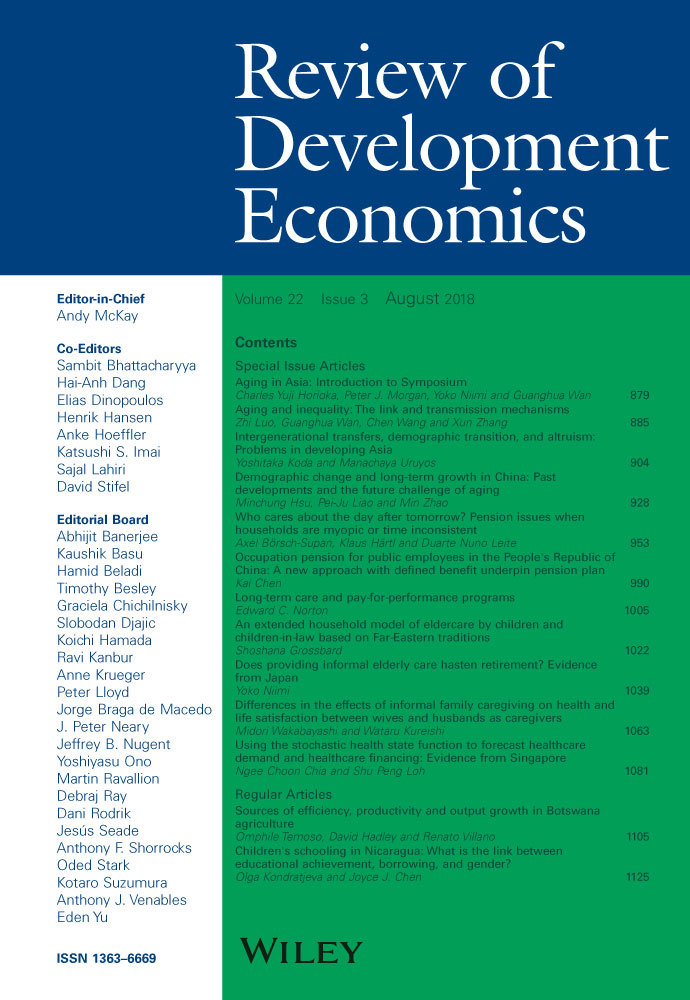Intergenerational transfers, demographic transition, and altruism: Problems in developing Asia
Funding Information
This research was funded by the Ratchadapisek Sompoch Endowment Fund (2015), Chulalongkorn University (CU-58-073-AS).
Abstract
This paper develops a three-period overlapping-generations model where middle-aged agents care about not only their own lifetime utility but also their old parents' and children's well-being. The doubly altruistic agents choose amounts of intergenerational transfers to their old parents and children as well as private savings. The government specifies amounts of public transfers from working adults to the dependents. The model also takes the effects of demographic transition on the burdens of supporting the elderly and children into account. Using 23 countries' data from the National Transfer Accounts (NTA), we estimate the degrees of filial and parental altruism and adjust them for their respective life expectancy and fertility rates. The findings suggest that people in developing countries are more parentally altruistic than those in developed ones while the adjusted degree of filial altruism tends to be low in developing Asia. Our welfare analyses reveal that the developing Asian countries must introduce more comprehensive public welfare programs for the elderly to maximize social welfare. Moreover, their low adjusted degree of filial altruism may trap the developing Asian countries at the low levels of public old-age support and social welfare as the further demographic transition ensues.




